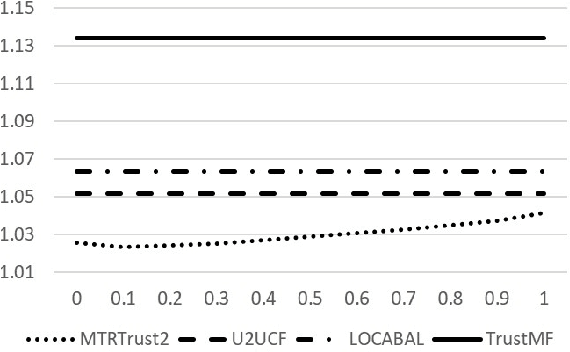Zhongli Filippo Hu
Justification of Recommender Systems Results: A Service-based Approach
Nov 07, 2022Abstract:With the increasing demand for predictable and accountable Artificial Intelligence, the ability to explain or justify recommender systems results by specifying how items are suggested, or why they are relevant, has become a primary goal. However, current models do not explicitly represent the services and actors that the user might encounter during the overall interaction with an item, from its selection to its usage. Thus, they cannot assess their impact on the user's experience. To address this issue, we propose a novel justification approach that uses service models to (i) extract experience data from reviews concerning all the stages of interaction with items, at different granularity levels, and (ii) organize the justification of recommendations around those stages. In a user study, we compared our approach with baselines reflecting the state of the art in the justification of recommender systems results. The participants evaluated the Perceived User Awareness Support provided by our service-based justification models higher than the one offered by the baselines. Moreover, our models received higher Interface Adequacy and Satisfaction evaluations by users having different levels of Curiosity or low Need for Cognition (NfC). Differently, high NfC participants preferred a direct inspection of item reviews. These findings encourage the adoption of service models to justify recommender systems results but suggest the investigation of personalization strategies to suit diverse interaction needs.
Multi-faceted Trust-based Collaborative Filtering
Mar 25, 2020



Abstract:Many collaborative recommender systems leverage social correlation theories to improve suggestion performance. However, they focus on explicit relations between users and they leave out other types of information that can contribute to determine users' global reputation; e.g., public recognition of reviewers' quality. We are interested in understanding if and when these additional types of feedback improve Top-N recommendation. For this purpose, we propose a multi-faceted trust model to integrate local trust, represented by social links, with various types of global trust evidence provided by social networks. We aim at identifying general classes of data in order to make our model applicable to different case studies. Then, we test the model by applying it to a variant of User-to-User Collaborative filtering (U2UCF) which supports the fusion of rating similarity, local trust derived from social relations, and multi-faceted reputation for rating prediction. We test our model on two datasets: the Yelp one publishes generic friend relations between users but provides different types of trust feedback, including user profile endorsements. The LibraryThing dataset offers fewer types of feedback but it provides more selective friend relations aimed at content sharing. The results of our experiments show that, on the Yelp dataset, our model outperforms both U2UCF and state-of-the-art trust-based recommenders that only use rating similarity and social relations. Differently, in the LibraryThing dataset, the combination of social relations and rating similarity achieves the best results. The lesson we learn is that multi-faceted trust can be a valuable type of information for recommendation. However, before using it in an application domain, an analysis of the type and amount of available trust evidence has to be done to assess its real impact on recommendation performance.
 Add to Chrome
Add to Chrome Add to Firefox
Add to Firefox Add to Edge
Add to Edge